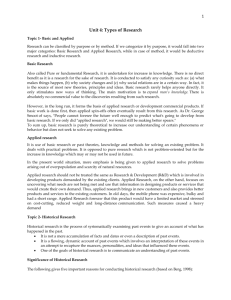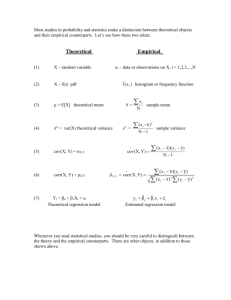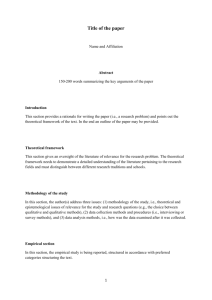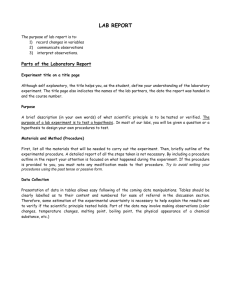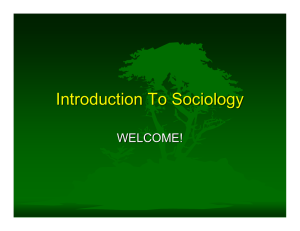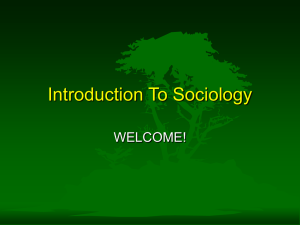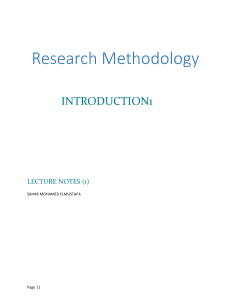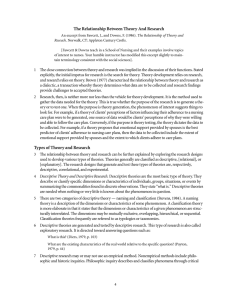محاضره 1
advertisement
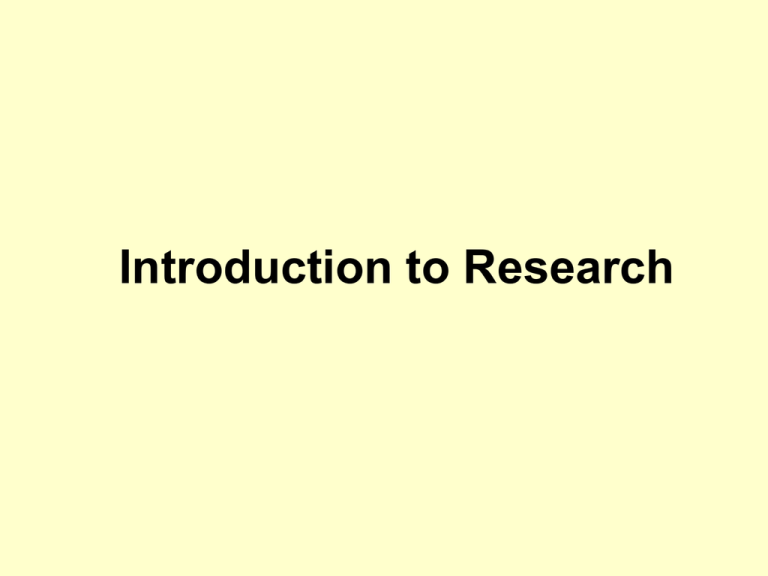
Introduction to Research Session outline • What is Research? • Why undertake Research? • Research Types Research? Research is an ORGANIZED and SYSTEMATIC way of FINDING ANSWERS to QUESTIONS. 3 • ORGANIZED in that there is a structure or method in going about doing research. It is a planned procedure, not a spontaneous one. It is focused and limited to a specific scope. 4 • SYSTEMATIC because there is a definite set of procedures and steps which you will follow. There are certain things in the research process which are always done in order to get the most accurate results. 5 • FINDING ANSWERS is the end of all research. Whether it is the answer to a hypothesis or even a simple question, research is successful when we find answers. Sometimes the answer is no, but it is still an answer. 6 • QUESTIONS are central to research. If there is no question, then the answer is of no use. Research is focused on relevant, useful, and important questions. Without a question, research has no focus, drive, or purpose. 7 WHY UNDERTAKE RESEARCH? •To investigate some existing situation or problem. • To provide solutions to a problem. • To explore and analyse more general issues. • To construct or create a new procedure or system. • To explain a new phenomenon. • To generate new knowledge. • A combination of two or more of any of the above. TYPES OF RESEARCH Exploratory research Takes place where there is little or no prior knowledge of a phenomenon. This type of research attempts to gain some familiarity with the appropriate concepts and looks for patterns or ideas without any preconceived ideas or explanation. Descriptive research Describes a particular phenomenon, focusing upon the issue of what is happening, or how much of it has happened, rather than why it is happening. Explanatory research This type of research is involved in explaining why something happens, and assessing causal relationships between variables. Predictive research Forecasts future phenomena, based on the interpretations suggested by explanatory research. PURE AND APPLIED RESEARCH Pure research takes place to explore a particular concept, or issue, without regard for a specific problem, and may be carried out to simply gain a better understanding of the overall concepts. Applied research is undertaken to solve a specific problem or provide a solution to a practical question. PRIMARY AND SECONDARY RESEARCH Primary research Refers to research that has involved the collection of original data specific to that particular research project, for example through using research methods such as questionnaires or interviews. Secondary research Refers to research where no such original data is collected, but the research project uses existing (or secondary) sources of data, for example census or archive data. THEORETICAL AND EMPIRICAL RESEARCH Theoretical research generally uses the findings from existing works to develop new ideas through analysing existing theory and explanations. These new ideas are not tested through collecting evidence in the form of primary data. Empirical research supports the development of new ideas through the collection of data (empirical = observation or measurement rather than theoretical reasoning). HOW TO READ RESEARCH 1. Locate and read a few articles from within a field you are comfortable with. 2. Read studies that are of interest to you. 3. Read the abstract first. 4. Identify the research question and objectives. 5. Why did the researcher(s) choose a particular setting or sample? 6. What were the methods chosen to collect data? 7. What were the most important findings? 8. Do not be over-concerned with statistical analysis. 9. Be critical but objective. WHAT IS RESEARCH - SUMMARY 1. There are a number of definitions of research. Defining research is less important than understanding its nature. 2. Research is important for the advancement of any academic field or discipline. 3. Research can be classified as exploratory, descriptive, explanatory or predictive depending upon its purpose. It can also be classified as either theoretical or applied depending upon the level of application of the findings to ‘real life’ situations. SUMMARY II Research may involve the collection of new data (primary research) or the use of existing data (secondary research). 4. 5. The best way to begin to develop your understanding of research, its role, and the types of research is to undertake some reading. Choose some appropriate articles, and begin to read!
